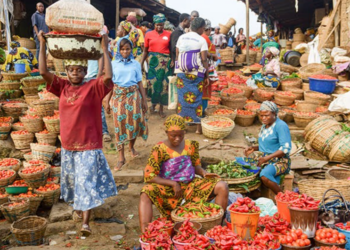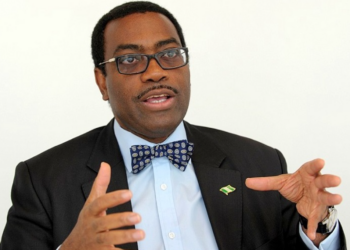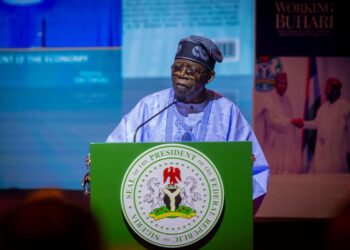The Lagos Commodities and Futures Exchange (LCFE) has called on the Federal Government to leverage the commodities exchange ecosystem to bolster food security, generate employment opportunities, and bolster Nigeria’s foreign exchange reserves.
Mr. Akin Akeredolu-Ale, the Managing Director and Chief Executive Officer of LCFE who made the call in Lagos at a forum emphasized that involving commodities exchanges in the process could lead to greater outcomes of curbing the food crisis.
Akeredolu-Ale highlighted the potential benefits of integrating commodities exchanges into government strategies, citing their ability to streamline agricultural supply chains, facilitate fair pricing mechanisms, and attract investments.
Recommended reading: Cost of living crisis: TUC to FG, begin importation of food
Capacity to address food security concerns
By harnessing the commodities exchange ecosystem, he believes Nigeria can significantly enhance its capacity to address food security concerns while simultaneously boosting economic growth and foreign exchange earnings.
- ” Commodities Exchanges connect smallholder farmers in rural areas to large markets. This increases earning income capacity, a key aspect of household food security.
- They facilitate food storage through their warehouses. Through warehouse receipts, smallholder farmers can access input loans to purchase fertilizers and other materials.
- Commodities exchanges reduce default risks in trading and encourage investment in food systems and they manage price risks in food systems by offering future trading.
- They disseminate market information, they can promote competition, reduce transaction cost and make food available amongst others,” he said.
The Nigerian food crisis
Akeredolu-Ale noted that the Nigerian economy is experiencing a food crisis with fast-rising food costs, cost of transportation, insecurity, poor infrastructure, and foreign exchange instability.
According to him, all these have affected the ability of commodity stakeholders to successfully produce food and transport it to where it’s needed.
- “It is commendable to note that Mr. President, his administration, and the executive governors of Niger State, Mohammed Umar Bago, and the Executive Governor of Lagos, Governor Babajide Sanwo-Olu have taken decisive steps to secure our Nation’s food supply chain.
- In Lagos State, the launch of the Lagos Rice Mill, the largest rice mill in Africa and the third largest rice mill in the world commenced operations in 2023 and has produced over 100,000 bags of rice in 2023. The mill’s products rival any global rice brand being imported into the country with their quality, taste, and colour,” he said.
Akeredolu-Ale noted that Lagos Commodities and Futures Exchange since receiving its license in 2019. has propagated the need for the investing community to focus on the Commodities Ecosystem as not only the next gold mine but also a route to driving the GDP of the economy from single digits to double digits.
- “LCFE has called for attention to the Commodities Ecosystem as One Trillion-dollar economy, rich in Agricultural, Oil, and gas, and Solid mineral commodities, he said.
He noted that since the listing of physical Gold coins called “Eko Gold Coins” in 2022, the Exchange has traded over N66 million worth of Gold through registered Commodity brokers on its Exchange.
Akeredolu-Ale commended the Securities and Exchange Commission (SEC) for its supportive roles in approving trading on various asset classes on LCFE.
























